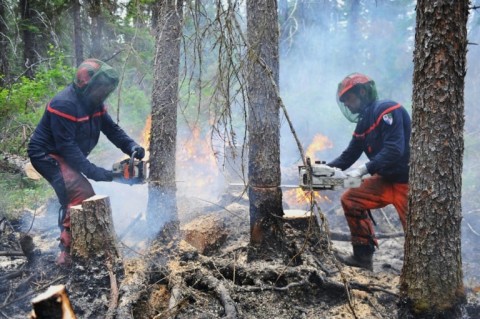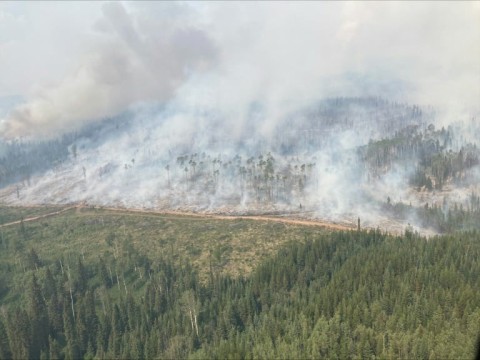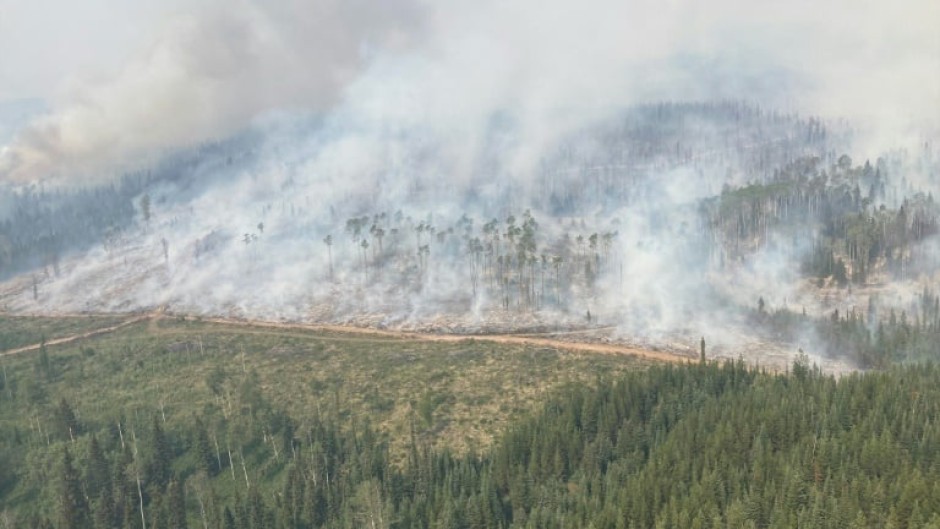
TORONTO - A firefighter in western Canada has died battling one of the devastating wildfires that have ravaged the country for weeks, her union announced on Friday.
The incident on Thursday was the first death on the ground since the start of the fire season, in which more than 900 fires are burning including 570 out of control.
The British Columbia General Employees Union said the woman died outside the town of Revelstoke in British Columbia.
"It is with heavy hearts that our union mourns the loss of one of our BCGEU family," it said.
The province's fire agency said "the individual was injured while responding to a wildfire" without elaborating.
Prime Minister Justin Trudeau called the news "heartbreaking" and thanked Canadian firefighters for their courage.

"We must never forget the risks these heroes take every time they run toward the danger," Trudeau tweeted.
British Columbia recently ordered new evacuations due to the blazes and requested the help of 1,000 more international firefighters.
"It is very, very challenging across Canada and across the globe right now to secure additional firefighting capacity," BC Fire Department spokesman Cliff Chapman said Thursday.
"This is a very dangerous job," he went on. "With the conditions we are in, it makes it all that much more dangerous for our staff who are working 14, 16, 20-hour days."
Sarah Budd with the British Columbia Wildfire Service said the weather will remain hot and dry for the foreseeable future.
"We're not expecting any reprieve from the weather," Budd said.
With nine million hectares (22.2 million acres) already gone up in smoke -- 11 times the average for the last decade -- the annual record set in 1989 has been surpassed.
Both sides of the country are burning at the same time, which is unusual for Canada.
Some provinces unaccustomed to fires have also been affected, including northern Quebec, where more than a million hectares have burned.
Canada, which is warming faster than the rest of the planet because of its geography, has been confronted with extreme weather events whose intensity and frequency have increased due to climate change.
Smoke from the fires has fouled the air in Canada and neighboring United States, affecting more than 100 million people, at times disrupting flights and forcing the cancellation of outdoor events.

